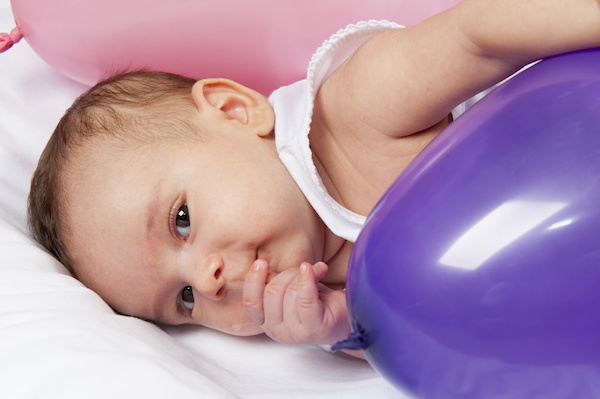MONDAY, Jan. 26, 2015 (HealthDay News) — Children with certain behavior problems are more likely to have sex at an early age, a new study reveals.
Boys and girls who are unruly and aggressive from a young age were found to be more likely to start having sex before age 16, researchers reported in the February issue of the journal Pediatrics.
The Australian study also found that boys — but not girls — who are socially anxious or withdrawn also tended to begin sex at a younger age.
Such behavior problems in boys as young as 5 and in girls as young as 10 can be used to accurately predict early initiation of sex, the researchers said.
These results show that, for some kids, parents may need to begin discussing sex at an earlier age to help their children make the right decisions, said Dr. Cora Breuner, a pediatrician at Seattle Children’s Hospital and a member of the American Academy of Pediatrics’ committee on adolescence.
“That may be earlier than people are comfortable with. That’s kindergarten. But you can’t talk about this stuff early enough,” said Breuner, who was not involved with the study. “There are certain kids that should be targeted with whatever intervention is needed to prevent early sexual activity.”
The new report is based on a long-term study of nearly 2,900 Australian children born in 1989.
The study authors focused on the kids’ self-reported sexual decisions. The investigators found that by age 17, about 45 percent of the boys and 51 percent of the girls already had experienced sexual intercourse.
Further, one in five boys and one in four girls said they’d had sex for the first time before 16, most at 15 years old, the study found.
Certain behavior patterns at younger ages — particularly what the researchers called “externalizing” or “internalizing” behaviors — appeared to indicate which kids were likely to have sex earlier than 16.
“Externalizing” behavior problems include aggressive and delinquent actions, while “internalizing” behaviors include social anxiety and withdrawal.
Boys who were acting out by ages 5 and 8 proved twice as likely to have sex at an early age. Girls who were disruptive at ages 10 and 14 were more than twice as likely, the study found.
“The obvious conduct disorder kids, the ones we’re really worried about — they don’t go to school, they’re mean, they’re violent — those are the ones we obviously think are going to make impulsive decisions that they will regret later, since they already have impulse control issues,” Breuner said.
But the findings showed that boys showing signs of internalizing behavior at age 10 were two and a half times more likely to have sex before 16.
“Those are the ones that really surprised me, these kids who we don’t pay attention to because they aren’t causing problems,” Breuner said.
She speculated that these boys might have sex as a way to fit in with the crowd.
“They don’t know how to interact with other kids and they don’t know how to say no, or they feel like the only way to be accepted by their peers is to say ‘yes,’ ” Breuner said.
These findings could be used to indicate which kids may be at greater risk for teen pregnancy and sexually transmitted diseases because they began sex early, said Dr. Andrew Adesman, chief of developmental and behavioral pediatrics at Cohen Children’s Medical Center of New York in New Hyde Park.
“The associations noted between different behavioral problems and early sexual activity could be helpful in identifying high school students at greatest risk for early sexual activity, which itself presents additional medical and psychosocial challenges,” Adesman said.
Vaughn Rickert, director of adolescent medicine at Indiana University School of Medicine, said that other factors could also play into a youngster’s decisions regarding sex. These include whether they are in a single-parent family, whether there is a lot of domestic strife in their family, and whether their family is economically disadvantaged.
Reports of behavior problems “do not necessarily account for what I would consider more powerful predictors of early sexual activity,” Rickert said.
Rickert added that the study’s definition of early sexual intercourse, at 15 or 16 years old, may be too strict and run counter to normal childhood sexual development.
“As children age, more and more become sexual beings, regardless of what they were like as younger children,” he said. “It’s not uncommon to see very few 14-year-olds who have had sex, but as they reach 15 and 16 years of age, there’s a greater proportion who have had sex with no adverse consequences.”
The association seen in the study between certain childhood behavior patterns and early initiation of sexual intercourse does not prove a cause-and-effect relationship.
More information
For more on talking to kids about sex, visit the American Academy of Pediatrics.
Copyright © 2024 HealthDay. All rights reserved.

